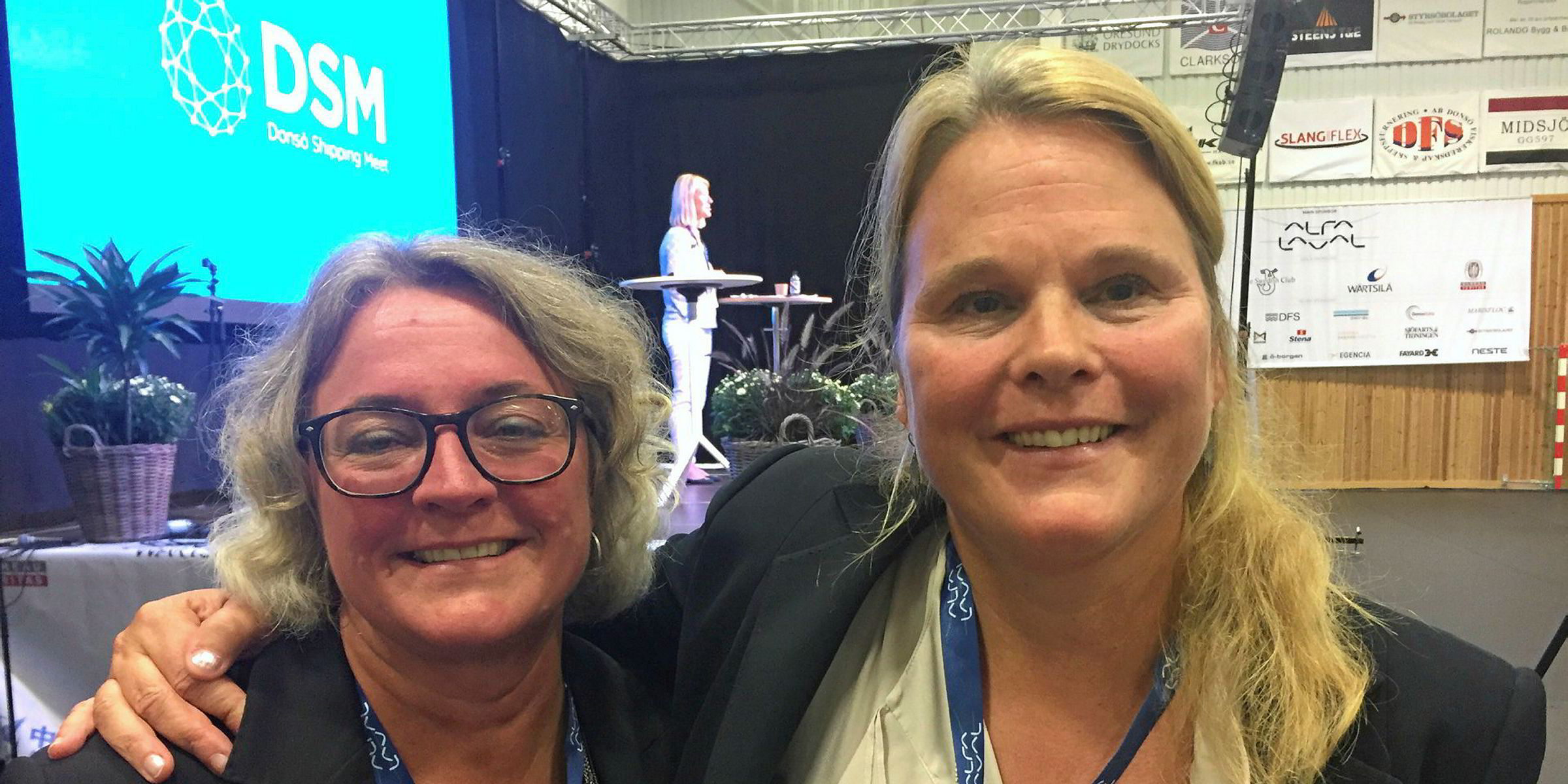Swedish Shipowners' Association (SSA) managing director Pia Berglund and her counterpart at Danish Shipping, Anne H Steffensen, insist there is no time to lose as the International Maritime Organization (IMO)’s global 0.5% sulphur cap deadline approaches.
The SSA has been urging owners internationally to get solutions in place quickly, ready for the January 2020 enforcement.
“Don’t delay it,” Berglund said. “You need time to prepare — not only the technical issues but also thinking about providers of low-sulphur fuels.”
Steffensen says the industry has already made a lot of headway. Some owners have opted to start building up fleets of LNG-powered vessels. Others, particularly shortsea operators, have been installing scrubbers. Other fuel alternatives are being explored.
Both bosses call for urgency on the part of the regulators. Newbuildings in the works today will arrive in one or two years and last for decades.
“We need to know now. Tell us about carbon dioxide, ballast water, etc,” Steffensen said.
“Certainty, enforcement and fair competition help us.”
Uncertainty and the regulatory delays do not.
Berglund and Steffensen are on the board of the International Chamber of Shipping (ICS) and can see that other nations are worried.
“The Northern European shipping cluster is already working together because the North Sea and Baltic are SECAs [sulphur emission control areas]. Since 2015 we have lots of experience,” said Berglund.
There has been debate among owners, but she said the industry has to adapt.
“If society requires us to be more environmentally friendly, that’s what we have to do,” she said.
Berglund says concerns beyond Europe are fair enough. "But two years post-SECA, we can tell them we survived,” she added.
The issue remains as to how the sulphur cap will be effectively enforced.
Steffensen says Danish Shipping has sought to constantly put that question on the ICS agenda to be sure of making an impact at the IMO.
“Secondly, we’ve tried to build alliances globally,” she said. “Colleagues elsewhere need to be on the same page, otherwise we’ll never have a level playing field globally.”
Berglund says port state control and flag states need to get cracking, given that North America is already a SECA and China soon will be.
“We need a system in place that favours the good guys and penalises the bad guys,” she said.
Berglund and Steffensen agree high fines are necessary.
“Serious owners don’t want to get fined. It’s not only money but also your reputation at stake,” Berglund said. Deterrents could include loss of contracts or action by insurers.
Steffensen says penalties must be proportionate to the savings an owner could make by not being in compliance.
She adds that the Danish authorities have so far caught 17 ships not in compliance with SECA rules, with fines ranging from DKK 370,000 ($59,765) down to DKK 30,000. The big fines should perhaps be bigger while smaller ones should accurately reflect the extent of non-compliance, she says.
“I've only one dream: that we have in place in 2020 a uniform and fair enforcement system that all port state controls around the world agree on and will enforce,” Steffensen said.
Berglund believes 99.8% of her constituents will be compliant in 2020.
“It is possible. It’s good for the environment. Be prepared,” she urged.



